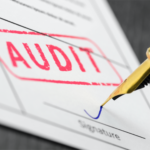Facing financial challenges and insolvency can be a daunting experience, both for individuals and businesses. Unfortunately, there are many misconceptions and myths surrounding the insolvency process that can lead to unnecessary fear and confusion. In this article, we aim to debunk some of the most common insolvency myths and provide clarity on the facts.
Myth 1: Insolvency and Bankruptcy Are the Same Thing
Fact: While bankruptcy is a form of insolvency, the two terms are not interchangeable. Insolvency is a broader concept that refers to a financial state where a person or business is unable to meet their financial obligations when they become due. Bankruptcy is a legal procedure that can be pursued under certain circumstances as a solution to insolvency. Other options for individuals include Individual Voluntary Arrangements (IVAs) and Debt Relief Orders (DROs).
Myth 2: Insolvency Means You’ll Lose Everything
Fact: Insolvency doesn’t necessarily mean you’ll lose all your assets. UK insolvency laws provide for different procedures that aim to balance the interests of creditors and the individual or business facing insolvency. In many cases, assets are protected, and arrangements are made to repay creditors over time.
Myth 3: Insolvency Ruins Your Credit Forever
Fact: Insolvency will impact your credit rating, but it doesn’t mean your credit will be ruined forever. The severity and duration of the impact depend on the type of insolvency and your actions afterward. Bankruptcy remains on your credit report for six years, but you can start rebuilding your credit immediately after discharge.
Myth 4: You Can Hide Assets to Avoid Insolvency
Fact: Attempting to hide or transfer assets to avoid insolvency is illegal and can lead to serious consequences, including criminal charges. Insolvency practitioners are skilled at tracing assets, and dishonesty can result in severe penalties.
Myth 5: Insolvency Is Always the Result of Poor Financial Management
Fact: While financial mismanagement can contribute to insolvency, it’s not always the sole cause. Unexpected events like economic downturns, medical emergencies, or business disputes can also lead to insolvency. It’s essential to approach insolvency with understanding and empathy rather than judgment.
Myth 6: Insolvency Practitioners Only Work for Creditors
Fact: Insolvency practitioners are licensed professionals who are impartial. Their role is to act in the best interests of all parties involved, including creditors and the insolvent individual or business. They work to find fair solutions and ensure compliance with insolvency laws.
Myth 7: Insolvency Is a Sign of Failure
Fact: While insolvency can be challenging, it’s not necessarily a sign of personal or business failure. Many successful individuals and businesses have faced insolvency at some point. It can be a valuable learning experience and an opportunity to make a fresh start.
Myth 8: You Can’t Start a New Business After Insolvency
Fact: Insolvency doesn’t permanently bar you from starting a new business. However, there are restrictions and considerations to be aware of, such as the director’s disqualification regime. It’s essential to seek legal and financial advice when contemplating a new business venture after insolvency.
Conclusion
Understanding the realities of insolvency is crucial for making informed decisions and dispelling unnecessary fears. Insolvency is a complex process, but it’s not the end of the road. With the right guidance and a clear understanding of the facts, individuals and businesses can navigate insolvency, learn from the experience, and work towards a more secure financial future. Remember that seeking professional advice from insolvency practitioners and financial experts is a crucial step in finding the best solution for your specific circumstances.
To find out more, get in touch with Voscap today on 020 7769 6831, or email help@voscap.co.uk.






